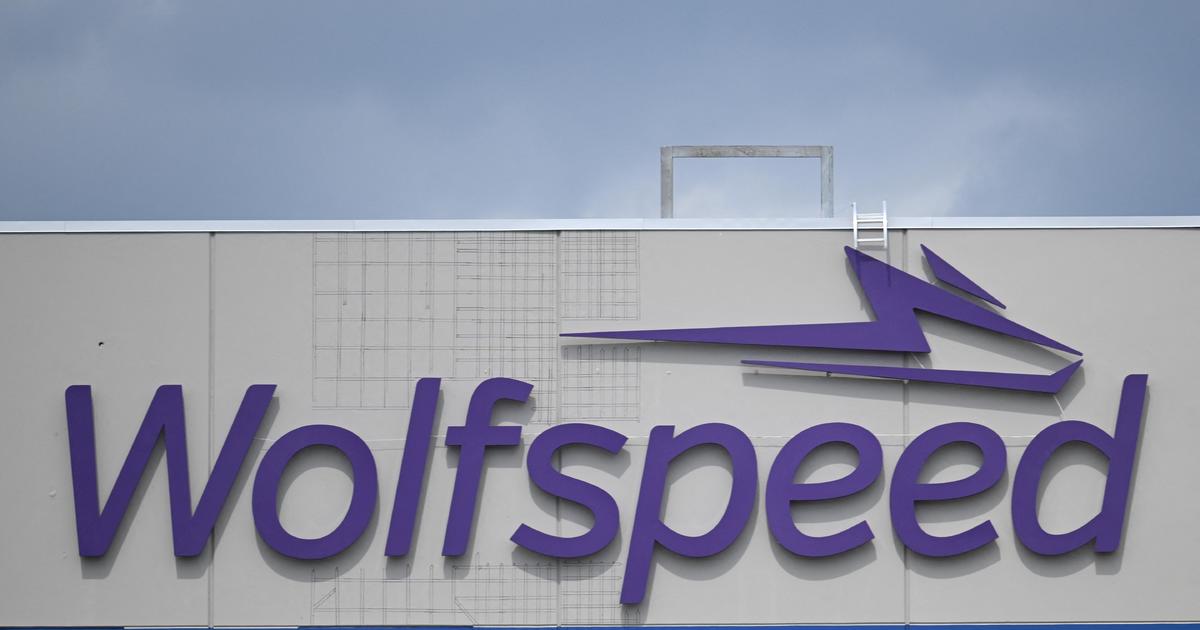The Biden-Harris administration’s recent $750 million grant to Wolfspeed, a leading semiconductor manufacturer, highlights a significant investment in bolstering the American semiconductor industry. This substantial funding, coupled with an additional $750 million from private investors and a projected $1 billion from tax credits, totals a potential $2.5 billion injection into Wolfspeed’s expansion. This strategic move aims to strengthen the U.S.’s position in the global semiconductor market, create jobs, and advance crucial technologies. The grant is a key component of the administration’s broader strategy to revitalize American manufacturing and compete with global rivals, particularly China, in the technological arena. The decision carries significant political weight, especially given the location of the new facility in a swing state and the ongoing debate regarding economic policy in the lead up to the upcoming election.
Government Support and Private Investment in the Semiconductor Industry
The substantial financial backing for Wolfspeed exemplifies the government’s commitment to supporting the domestic semiconductor industry. The $750 million grant, sourced from the CHIPS and Science Act, acts as a catalyst, attracting an additional $750 million from private investment firms. This blend of public and private funding showcases a collaborative approach to bolstering a strategically important sector. The participation of prominent investment firms like Apollo, The Baupost Group, Fidelity Management & Research Company, and Capital Group signifies strong market confidence in Wolfspeed’s potential and the long-term prospects of the semiconductor industry. This financial infusion is not just about providing capital; it is a vote of confidence in the technological advancements driving Wolfspeed’s growth and the broader significance of the company to national security.
The CHIPS and Science Act’s Impact
The CHIPS and Science Act played a crucial role in securing this substantial investment. It provided the legislative framework and funding mechanism for the government grant. The Act, passed amidst concerns about the global chip shortage and the potential vulnerabilities of relying heavily on foreign chip production, aims to revitalize American manufacturing capabilities. The Wolfspeed investment showcases the Act’s effectiveness in stimulating both public and private investment in the sector. The government’s commitment underscores its recognition of the semiconductor industry as critical to national security, economic competitiveness and the future development of key technological advancements.
Wolfspeed’s Role in Advanced Technologies
Wolfspeed specializes in silicon carbide (SiC) technology, a crucial material for producing highly efficient computer chips. These chips are vital for powering electric vehicles, renewable energy technologies, and advanced electronics. The company’s expertise in SiC positions it at the forefront of innovation in several critical sectors. The two new facilities, in North Carolina and New York, will significantly increase the nation’s production capacity for SiC chips. This increase in domestic manufacturing capacity helps reduce reliance on foreign suppliers. Moreover, it enhances technological competitiveness, while creating a significant number of high-skilled jobs.
Job Creation and Economic Growth
The project promises to create around 2,000 manufacturing jobs. These jobs are not only significant for the local economies of North Carolina and New York, but represent broader economic benefits nationally. The creation of high-paying jobs directly contributes to economic growth and helps attract other businesses to those regions. Moreover, the wider technological advancements fuelled by Wolfspeed’s expansion ripple out, creating new economic opportunities across associated industries. These industries, which rely on advanced semiconductor technology, gain the benefit of faster and more reliable access to core components driving technological innovations.
Geopolitical Implications and National Security
The strategic investment in Wolfspeed carries significant geopolitical implications. The Biden administration’s focus on increasing domestic semiconductor production is a response to growing concerns about reliance on foreign manufacturers, particularly Taiwan, which dominates global chip production. China’s increasing ambitions in the semiconductor industry and its potential control over key chip-producing areas adds to these concerns. Strengthening American production of essential semiconductor components like those made by Wolfspeed is a crucial step in enhancing national security and economic independence. The administration frames this move as a crucial step to outcompete China’s advances in the global semiconductor industry.
Securing a Competitive Edge
By supporting Wolfspeed, the United States not only secures its lead in SiC technology but also reduces its dependence on foreign sources for vital components. The move actively counters the ambitions of global competitors striving to secure dominance in semiconductor manufacturing, bolstering the American technology sector and protecting vital industries from supply chain disruption. The expanded manufacturing capacity translates directly into improved national security through less vulnerability to geopolitical uncertainties and increased economic resilience in technological sectors critical to American security.
Takeaway Points:
- The $2.5 billion investment in Wolfspeed showcases a significant commitment to boosting the U.S. semiconductor industry.
- The blend of public and private funding demonstrates a successful collaborative approach to industrial growth.
- Wolfspeed’s focus on SiC technology positions the U.S. at the forefront of critical technological advancements.
- The initiative aims to create high-skilled jobs, boost the economy and enhance national security.




